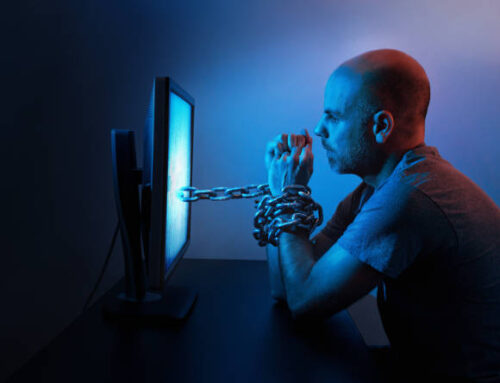Right alongside money and property, one of the most valuable things that you own is your reputation. In our modern digital world, our reputations are arguably more important than ever before, and they are also much harder to get away from. As such, it is important to protect your reputation, and a big part of that is being mindful of the information you share online.
One of the fundamental truths of the internet is that once you’ve put something online, it is very difficult to get rid of completely. Sure, if you make an embarrassing post today, you can delete it tomorrow, but there’s no guarantee that someone else won’t have already copied and shared it elsewhere. With the rise of social media, it has become possible to express your feelings and opinions almost instantly to a wide audience, but this also makes it easy to say or do something without fully considering the consequences.
If you want to maintain a positive reputation, you must consider how your words and actions will be seen by others, and that includes those that occur online!
What Is Your Digital Reputation?
Your digital reputation is the digital footprint that you create through all of things you say and do online, along with what others post about you. This includes everything from the people and websites you follow, the content that you share, like, or post, and the comments that you make. Everything that you do online contributes to your digital reputation, which in turn can affect aspects of your day-to-day life.
The reason that many people (especially younger generations) don’t consider their digital reputation is that they often see what they do online as being separate from their daily lives. If they don’t know someone in real life, then their interactions with them almost aren’t “real,” which can make it easier to sling insults and indulge in bad behavior. There are many cases of people being abusive to others online, only for their victims to contact the abusers’ friends or family, leading to a lot of grief and personal conflicts.
Additionally, most people don’t consider the possibility of anyone but their followers seeing what they post online. Yet many social media platforms offer little in the way of protection in terms of who can see what you post online, so if someone Googles your name, they could easily come across your various accounts and learn far more than you might have anticipated.
How Do You Protect Your Digital Reputation?
First and foremost, always consider the possibility that what you post could be seen by someone other than your intended audience. If you wouldn’t be comfortable with your future employer, your priest, or your grandmother seeing something, then you probably shouldn’t share it on Facebook. This includes text, pictures, and videos. You should treat your online profile as the version of yourself that you want everyone to know rather than your “real self.” Just as you likely have “office etiquette” in the workplace, so should you use proper “internet etiquette” while online.
Additionally, you need to be cautious about sharing sensitive information or personal data. Obviously, you should never give out account passwords or any personal identifying information, but you should also consider whether you really need to share certain personal informal information. Some events in your life might be worth sharing with everyone, while others might be something that only family or close friends should know. This is true of other people’s information as well: don’t share something about a friend or family member online if you think it would embarrass them or hurt their reputation.
If you’re worried about your current digital reputation, there are steps you can take to mitigate any damage done. Try entering your name into Google and see what comes up. If you find things that you thought were private, check your privacy settings right away. Also, if you appear in any other people’s photos or videos, try to un-tag yourself or ask them to remove the content. You might not be able to erase your existing digital footprint, but you can make it harder for people to find anything your embarrassed about.
The key to maintaining a strong digital reputation is constant self-awareness. You can’t opt out of having an online reputation in today’s digitally centric world, but you can smarter choices and be proactive about getting ahead of common issues that can plague your online reputation. Your digital reputation can affect you from the first time you post online, so it’s never too early to make smart changes and take control of your reputation!





